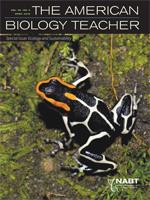K—12 science programs in the United States are implementing inquiry-based lessons to expose students to the scientific process, and in some states these changes are mandated by regulations. At the same time, university faculty in science, technology, engineering, and math (STEM) disciplines are being encouraged by agencies funding their research to develop outreach activities that typically involve schools. Outreach programs promoting interactions between schools and universities are one means to address this need, and here we describe such a program between a Los Angeles independent school and California State University, Northridge. Our program exploits experiential learning focused on marine biology to engage students in ecological research with application to contemporary environmental issues such as climate change. Moreover, it addresses multiple aspects of the Next Generation Science Standards within a flexible framework that can be adapted to multiple curricular needs. Coral reefs are used as a model system in this program, but the concepts can easily be extended to other coastal marine environments. The program has evolved through three phases: (1) fostering interactions among educational partners, and developing curricula through research that exploits problem-solving skills; (2) completion of scientific activities in the classroom and field; and (3) engaging students in the scientific process through professional conferences and publication. These efforts have led to a self-sustaining program of interactions among schoolchildren, undergraduates, graduate students, K—12 educators, and university faculty that is promoting STEM careers and generating peer-reviewed publications.
How to translate text using browser tools
1 April 2016
Experiential Ecological Investigations as a Vehicle Coupling Teaching & Research in High Schools & Universities
Craig Didden,
Peter J. Edmunds
ACCESS THE FULL ARTICLE
It is not available for individual sale.
This article is only available to subscribers.
It is not available for individual sale.
It is not available for individual sale.

The American Biology Teacher
Vol. 78 • No. 4
April 2016
Vol. 78 • No. 4
April 2016
ecological monitoring
Inquiry-based lessons
NSF-RET
science deliverables




